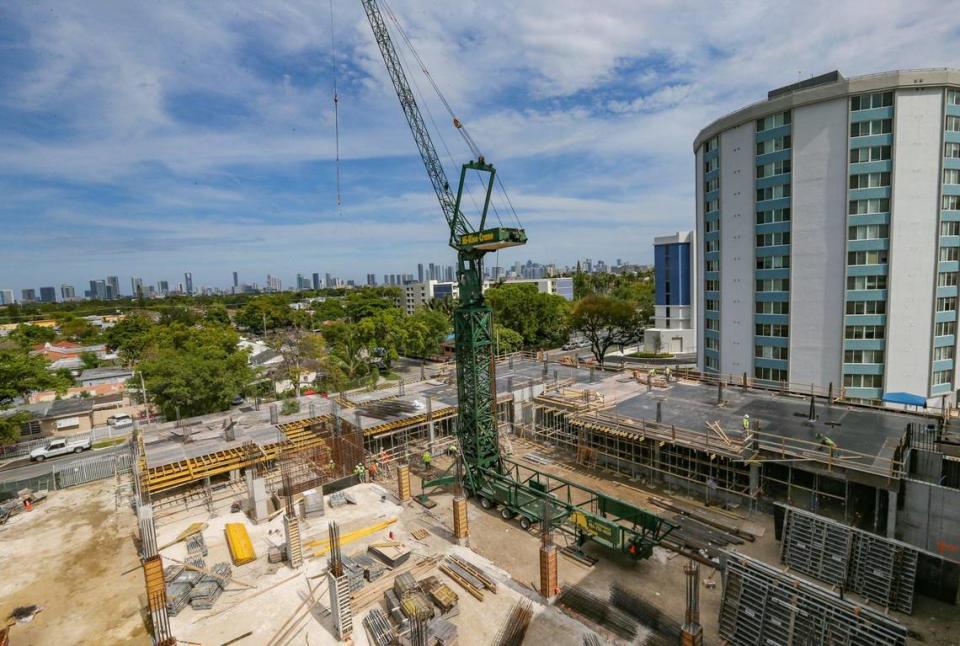As Fed boosts interest rates to fight inflation, mortgage costs rise and slow housing market
Few industries are as sensitive to interest rate changes as housing.
As borrowing costs rise, purchasing power declines. That creates a drag on accelerating home prices, which can stimulate more owners to put their homes on the market for sale in hopes of cashing in before prices fall.
Housing supply increases as demand drops, threatening a wicked cycle for what often is Americans’ biggest investment.
It is one of the worries as the Federal Reserve keeps fighting inflation. The central bank must raise its target short-term interest rate in hopes of cooling pandemic-induced higher prices. Mortgage rates have jumped as a result. The average 30-year mortgage interest rate has almost doubled from a year ago. That adds about $600 a month to the cost of borrowing money to buy a median-priced existing home.
Investors will get a look at three important gauges on the housing market this week.
The National Association of Home Builders August index will be released Monday. Homebuilders are asked about their views on the single-family home market now and in the next six months. Both have been deteriorating.
On Tuesday, July stats on construction starts of new homes are due. Single-family home construction has been slowing because of higher borrowing costs, more expensive building materials and rising labor costs. Stocks of homebuilders have been among the worst performers this year for investors.
And the two largest home improvement retailers, Home Depot and Lowe’s, will announce their latest quarterly results on Tuesday and Wednesday. Their businesses boomed when people were staying home to avoid COVID-19 and spending money to remodel their homes and home offices.
That buying binge has slowed. The stores have experienced supply chain challenges and inflationary pressures such as double-digit wholesale price hikes on major appliances like refrigerators and washing machines. That squeezes profit margins as the stores are careful about how much of those higher costs to pass along to buyers. (Full disclosure: I have owned Home Depot stock for more than a decade.)
The Fed isn’t about to pause its interest rate hikes, if the housing market shows signs of slowing. It is unlikely to blink even if home prices begin to fall, at least a little. A cooler housing market will help improve the inflation outlook, even if it shakes economic confidence.
Tom Hudson hosts ‘The Sunshine Economy’ on WLRN-FM, where he is the vice president of news. Twitter: @HudsonsView


